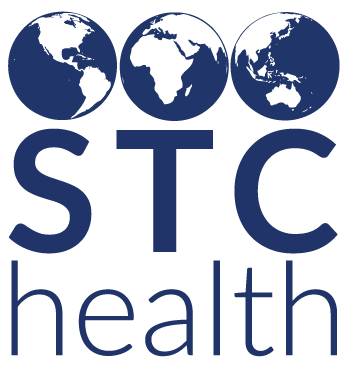STChealth Chief Epidemiologist Weighs In On Vaccines versus Variants: Who’s winning the race? Will we have another National shutdown?
Industry: Healthcare
Will COVID variants cause us to go into shutdown? Will vaccine manufacturers be able to prevent that scenario? STChealth Epidemiologist Dr. Kyle Freese weighs in.
Phoenix, AZ (PRUnderground) April 22nd, 2021
Now that the majority of adults in the U.S. have had at least one dose of a COVID vaccine, the level of deaths should continue to decline… unless there’s a deadly new variant. How worried should we be? We put that question to Dr. Kyle Freese, epidemiologist with STChealth, a leader in immunization intelligence. He responded,
“It depends on how the variants play out and how many people we can actually get immunized. My worry isn’t consistent across geographies. Low and middle-income countries have me worried. It worries me for a number of reasons: one, it has a large rural population with limited access to healthcare. Two, there are pockets of vaccine-hesitancy, the underlying reasons for which are not always easily overcome. Three, data collection is limited. Four, vaccine distribution is difficult, both because of the geography and the fact that many vaccines must be kept in certain conditions throughout the supply chain; that is, cold chains.” He added,
“It’s places like sub-Saharan Africa that scare me the most because variants could spread quickly and without controls.”
How likely is it that vaccinations can reach low-income countries and head off many new variants? The goal of COVAX (an international partnership led by the WHO, Gavi and the Coalition for Epidemic Preparedness Innovations) is TWO BILLION doses administered by the end of this year. Even if that can be done, there’s still a problem: The global population is approaching EIGHT BILLION.
The COVAX allocation framework is to give all countries an initial supply sufficient to vaccinate 3% of their populations, focusing on healthcare and frontline workers; then, enough to vaccinate 20% of their populations in 2021. The following phase of allocation, coming in 2022, aims to get the total to 30-50% of the population, with sufficient supply to vaccinate the entire world population coming in 2023 or 2024. In other words, Covid will have two or three more years to evolve, meaning many millions of opportunities for vaccine-evading variants.
Reacting to the timetable for global vaccination, Dr. Freese said: “I try to stay hopeful. For one thing, a new booster could likely be developed quickly. But its success is totally dependent on people’s trust in the public health system and their willingness to roll up their sleeves.”
About STChealth
STChealth’s mission is to eradicate vaccine preventable disease and empower individuals through our innovative technology and service solutions. We deliver on our mission through passion and innovation, through teamwork and inclusion, through superior client service and products, and a relentless pursuit of the next ”big idea” that will advance immunization intelligence. Starting with developing the first Immunization Information System (IIS) and over 35 years of experience in the immunization ecosystem, STChealth is positioned today to support more than 1/3 of COVID-19 vaccinations reported in the U.S. through our network of over 70,000 Providers and Pharmacy Partners. More information can be found at www.STChealth.com


